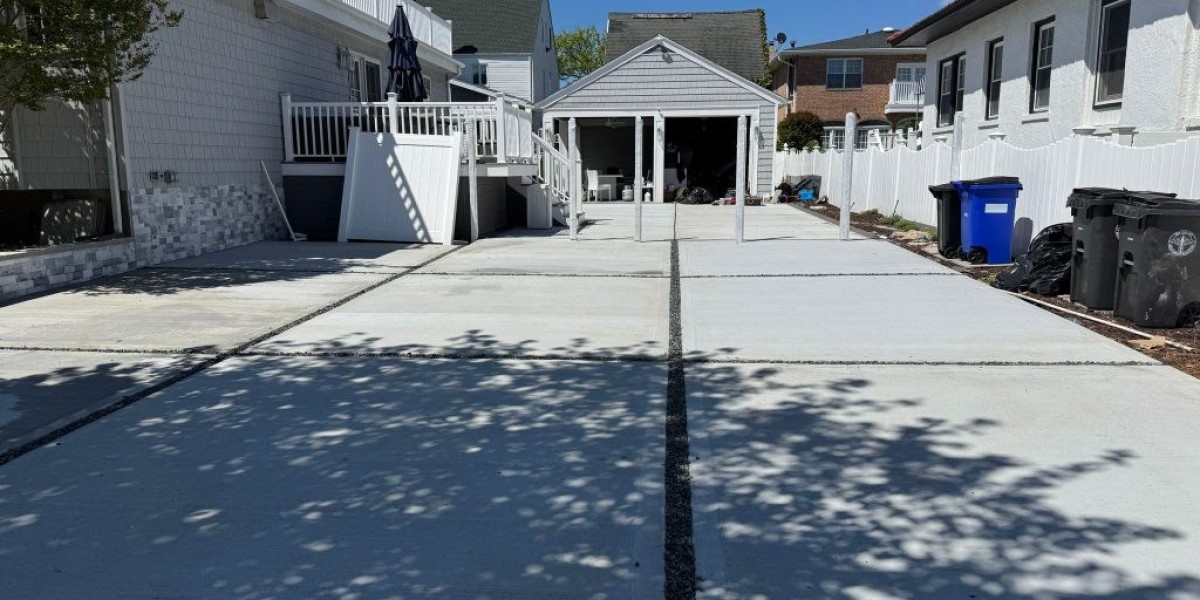RMI Education and Skills Strengthening Project
The Government of the Republic of Marshall Islands has actually received funding from the World Bank for the Education and Skills Strengthening Project (ESSP) cost. It plans to apply part of the proceeds for consulting services.
The consulting services ("the Services") will assist the Project Manager and the RMI National Training Council in executing the World Bank-funded task efficiently.
The task will focus on supporting the Project Implementation Unit (PIU) in developing a structure for Recognition of Prior Learning (RPL) for TVET, aimed at helping the College of the Marshall Islands and the RMI National Training Council evaluate and enhance the abilities of workers through certified college certification.
The in-depth Terms of Reference (TOR) for the project are shown in the attached Terms of Reference (ToR).
The National Training Council now welcomes qualified individuals ("Consultants") to indicate their interest in offering the Services. Interested Consultants should offer details showing that they have the required qualifications and pertinent experience to carry out the Services (attach a Cover Letter of no greater than four (4) pages dealing with the obligatory experience and certification requirements curriculum vitae with a description of experience in similar projects, similar conditions, etc). Companies' personnel may reveal interest through the using firm for the assignment. In such a circumstance, just the experience and credentials of individuals will be considered in the selection procedure. The criteria for electing the Consultant are: A.
Mandatory Qualifications and Experience Master's degree in education, training
, management, or a related field. Minimum of 5-10 years of experience working in TVET System. Curriculum Design and Systems.
Possess 2-5 years' experience creating and
implementing RPL. frameworks, policies, and treatments. A sample of previous work will be required as proof of previous experience. Exceptional communication, training, and facilitation
skills. Experience with dealing with diverse stakeholders, including government. agencies, TVET organizations, companies, and learners in the Pacific. B. Desired Qualifications and Experience Capability to deal sensitively in a multicultural
environment and build reliable team relationships with clients and appropriate stakeholders. The attention of interested Consultants (including firms )is drawn to paragraphs 3.14, 3.16 and 3.17 of the World Bank's"
Procurement Regulations for IPF Borrowers "July 2016 revised November 2020" Procurement Regulations ", stating the World Bank's policy on dispute of interest. Additional info can be acquired at the address below during office hours, 0900 to 1700 local time. Expressions of interest must be
provided in a written type to the address below (in person or by email )by 5:00 pm, 23rd December 2024.
The subject line ought to state:"National Training Council Strategic Plan Consultant -full name of the prospect". Julius Lucky Director National Training Council!.?.!ntcdr@ntcinfo.org:Phone: 692 625-4521 Empowering Community Champions for www.adb.org Sustainable Development in RMI Gender Equality, Climate Resilience and Water Safety Training Majuro,
Republic of the Marshall Islands: The fourth
Women and Youth Training for
Gender Equality, Climate Change, Disaster Risk Reduction and Water Safety Management has actually just recently taken place at the University of the South Pacific's school in Majuro, the Republic of the Marshall Islands(rmi national training council ). This vital training was arranged by the United Nations Development Programme( UNDP )Pacific Office through the Addressing Climate Vulnerability in the Water Sector(ACWA) project. The week-long capacity-building training intended to empower women and youth with the knowledge and practices required for climate-resilient water security management in the
Republic of the Marshall Islands(RMI ). This training strengthens a dedication to enhancing RMI's water security and community durability versus climate modification effects, especially women

and youth, making sure that no one is left behind. The training invited individuals from all 24 atolls and featured resource speakers from federal government companies, non-governmental companies, and global development partners from the RMI Environmental Protection Authority, Climate Change Directorate, Office of the Chief Secretary, Ministry of Culture and Internal Affairs, National Disaster Management Office, Women United Together Marshall Islands, RMI Human Trafficking Task Force, Waan Aelõñ in Majel, Jo-Jikum, and the International Organization for Migration. In her opening remarks, Secretary for the Ministry of Culture and Internal Affairs, Brenda Alik, highlighted the significance of cumulative action in developing a climate-resilient country."It is our obligation to come together and interact. As we deal with the difficulties presented by environment modification, understanding its impact on our water resources is vital for improving the well-being of neighborhoods throughout the Marshall Islands,"she said.
RMI Environmental Protection Authority General Manager Moriana Philip highlighted in her speech the vital function of women and youth in attending to climate-related obstacles."This workshop joins us from different communities to attend to the pressing issues we deal with today, consisting of climate-related obstacles, especially on our water resources."We want to stress the crucial function of women and youth in this job as your involvement is instrumental to its success and beyond, "she stated.
The first day of the workshop covered critical issues connected to gender equality, human rights, and public health within the Marshall Islands. It consisted of discussions on gender equality and mainstreaming, concentrating on the impacts of environment modification on water security and the disproportionate effects on susceptible groups. The importance of incorporating gender equality and social addition into all task aspects was also discussed. Human rights and human trafficking were tackled, worrying the requirement for detailed protection of vulnerable populations
throughout emergency situations. In addition, the workshop resolved gender-based violence, highlighting the various types that can occur in disaster circumstances, such as domestic violence and sexual browbeating. The agenda concluded with a concentrate on sanitation and health and their important role in health, livelihoods, school attendance, self-respect, and structure resilient communities. ACWA Project Manager Koji Kumamaru expressed his appreciation to all participants
, stressing the importance of their contributions to their neighborhoods."Women and youth are essential to the success of the ACWA project. More importantly, you are the champions and future leaders who will return to your communities to empower others,"he stated. Throughout the workshop, individuals visited Rongrong Island and took a look at the 15,000-gallon Flatpack Modular water tank installed at the Rongrong High School Boys Dormitory as part of the ACWA task. The installation is an essential part of the project, complemented by support from Australia
's Department of Foreign Affairs and Trade. The go to worked as a valuable firsthand experience of the positive effect of the ACWA job on the community and its
water resources. Marie Naisher from Jabat Island revealed her thankfulness for the opportunity to sign up with the workshop and explained her desire to be part of the job when it reaches Jabat.
"This was my first time participating in such training, and I learned a lot from the visitor speakers, group activities, and the website check out. I now understand the significance of tidy water and how to sanitize it. I'm thrilled about the ACWA job coming to Jabat and ready to assist when it gets here,"she said. Don Kobney, an ACWA site planner from Santo, Kwajalein, likewise shared his enjoyment."The workshop and site visit increased my confidence and understanding of the water tank setup.
Seeing the 15,000-gallon flatpack modular water tank firsthand gave me a clear understanding of the system, and I'm looking forward to sharing this knowledge with my neighborhood, "he stated. By the workshop's end, participants were much better equipped to comprehend climate change and its regional impacts, drive adaptation and mitigation efforts, particularly in water security, and use new resources to impact their neighborhoods positively. ACWA is made possible thanks to the assistance of the Green Climate
Fund, with the job co-financed by the Government of the Republic of the Marshall Islands
. The Marshall Islands: Skills Training and Vocational Education Project Assesses the efficiency of the job and highlights lessons. Provides inputs to two broader evaluations- the local examination of ADB assistance for the Pacific and the unique examination study on Millennium Development Goals. The low instructional achievement and lack of Marshallese skilled workers were mostly due to the poor quality of fundamental education, lack of access to education in the external islands, and weak points in skills training and the employment and technical education system.
These supported an economy marked by high unemployment because of constrained private sector growth and federal government downsizing. Unemployment was especially high among the youth and women in the external islands. Appropriate regional proficient personnel for existing job vacancies
were not available, for this reason the importation of appropriately experienced foreign employees. Thus, there was a mismatch in between readily available tasks and abilities of the Marshallese labour force. These conditions offered the effort for the Government
of the Marshall Islands to focus on technical and professional education training reforms. In 2000, ADB authorized a loan for $9.1 million to enhance abilities training to provide well-trained employees required for sustained financial and social development. This was to be accomplished through an integrated national abilities training system. The project consisted of 4 elements: development of a profession awareness program, abilities training enhancement, boosted skills training opportunities for women and youth, and institutional strengthening. The anticipated outcome was increased income-generating chances and employment for trainees, specifically women and youth in the outer islands. Overall, the project was ranked unsuccessful. Minimal development was attained in making the task responsive to the requirements of its beneficiaries and private-sector companies. The long-standing weak point of bad numeracy and literacy proficiencies
among public elementary and secondary school graduates and dropouts going into college or going to voc-tech education could be partly credited to the poor quality of basic education. The project was supply-driven and might not establish a strong linkage with economic sector requirements or align its activities with the needs of the labour market. The status of the technical and vocational education training system has stayed essentially the exact same after job completion. The study advanced that ADB could motivate the Government of the Marshall Islands, through consultation and policy discussion, to follow through on the federal government's
dedication to establishing a committed labour info system to connect technical and employment education training program offerings with market demand. Although the job set up a labour market information system, in the lack of internal staff ability at the National Training Council, it was not totally operational.






